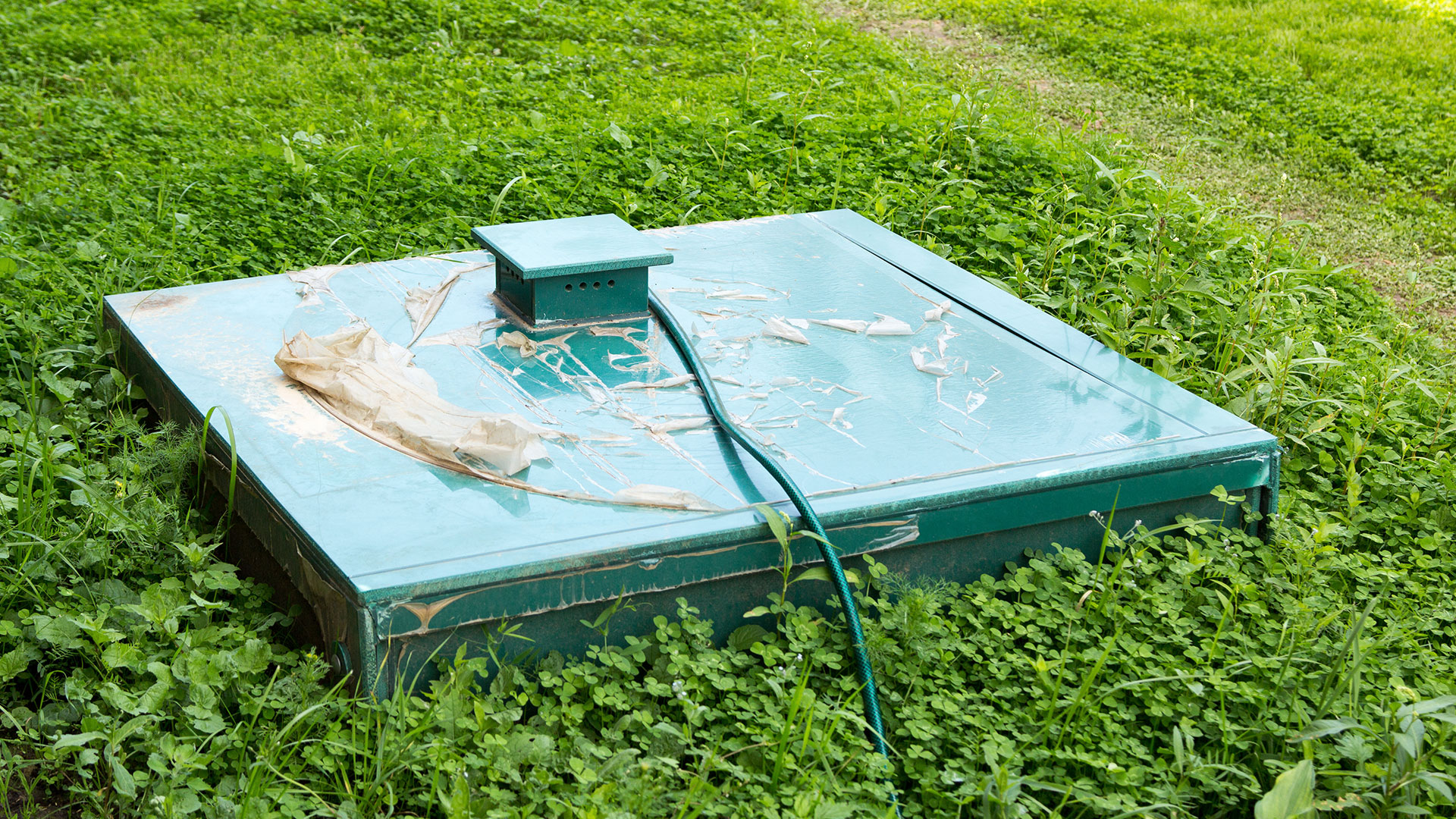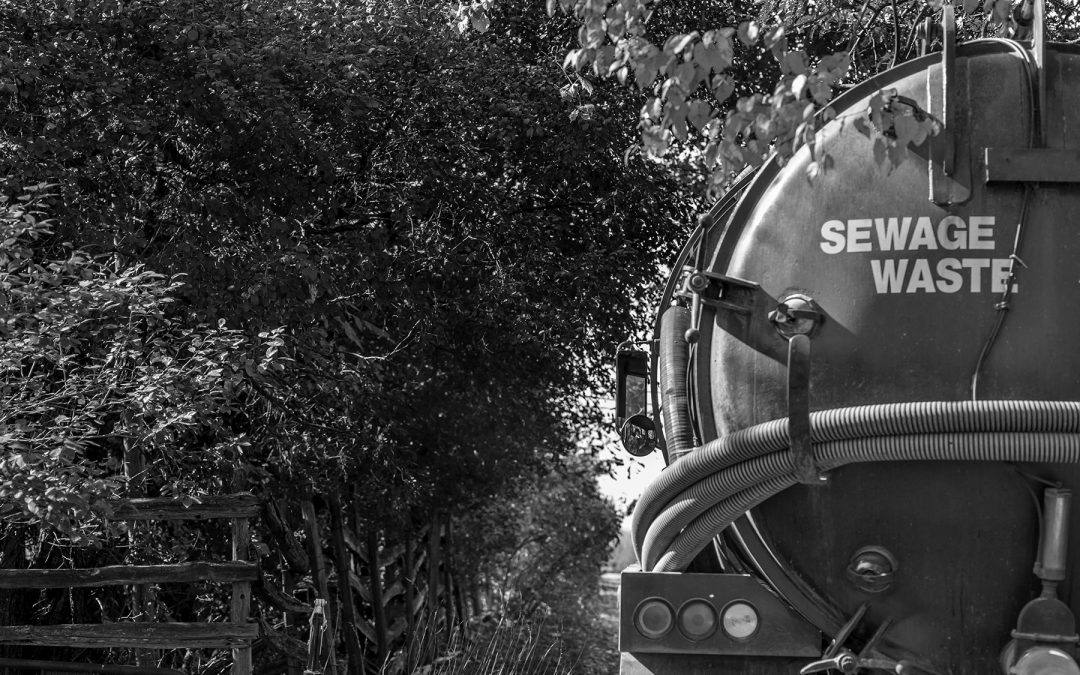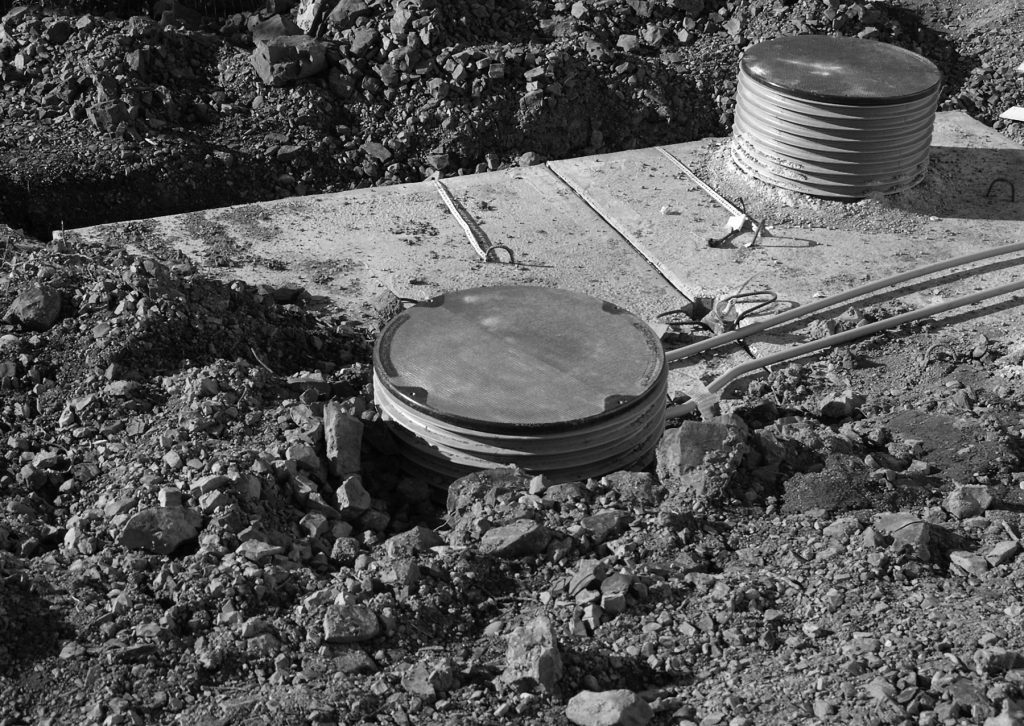What is…
…out of sight
…constantly working
…something that can impact water quality, pose health risks to people and can contaminate drinking water, if it isn’t maintained?
If you guessed septic systems – you’re right!
Even though they’re out of sight, it is important not to forget about them. Whether you have a septic tank or a holding tank, there’s information here for you.

@ LoveYourLake.ca
Why it’s important to maintain your septic system
If you love your lake you will want to make sure your septic system is functioning properly. Improperly treated wastewater contain bacteria, viruses, phosphorus and nitrogen. Inadequate treatment can result in an overabundance of weeds and algal blooms that can make a lake unpleasant for swimming and boating. Inadequate treatment also affects water quality and habitats for wildlife, not to mention health risks like hepatitis and dysentery.
How to maintain your septic system
Maintaining your septic system is your responsibility! Follow these helpful tips to make sure your septic system keeps functioning properly.
Septic System Do’s:
- Do know where your tank and drain field are.
- Do reduce your water use to keep solid sludge settled on the bottom of the tank.
- Use dishwashers and washing machines for full loads.
- Take shorter showers instead of baths.
- Install water saving devices.
- Do have your septic system inspected and pumped regularly and keep a record of all maintenance work.
- Have this done by a licensed professional.
- How often you do this depends on the size of your tank, how many people are in your household and how much it is being used. A general rule of thumb is to have a septic tank inspected and pumped every three to five years.
- Holding tanks may have to be pumped as often as every week, depending on its size and usage. Check your tank regularly to ensure it is not overfull and have it pumped out before it reaches its capacity.
- When your tank is being pumped, have the contractor check the scum and sledge depth, inspect for any large cracks or deterioration and check the fit of access lids.
- The best time to pump out your septic tank is summer and early fall. This ensures the tank will have time to refill and re-establish bacterial activity before winter.
- For holding tanks that receive little to no use over winter, leave about one foot of liquid in the tank to maintain bacterial action and reduce the risk of damage from freezing.
- Do keep your septic system accessible so it can be properly maintained – you won’t want to keep it somewhere that’s hard to get, like under a deck.
- Do have an effluent filter. They are inexpensive and can be added to new systems or retrofitted to older systems. They put less stress on the drain field and must be cleaned every six months and when your septic tank is pumped.
Septic System Don’ts:
- Don’t drive or park vehicles on top of your drain field; this can compact the soil and damage pipes.
- Don’t use cleaners, soaps and detergents with phosphates.
- Don’t plant trees or shrubs too close to your septic system. Keep a five metre perimeter around the edge of the drain field clear of trees and shrubs. Make it 10 metres for poplars and willows as they have creeping roots.
- Don’t use septic additives. They are not necessary or effective and some may harm your system.
- Don’t flush anything that you didn’t produce, except for toilet paper! That means no fats, grease, paints, cat litter, sanitary products, diapers, wipes, cigarette butts or kitchen waste.
- Don’t water your lawn over the drain field.
What to do if your septic system isn’t working properly
It’s time to call for help if:
- Your toilets or drains are backed up
- You have foul smells in the house
- You find soft or spongy ground over the drain field,
- Your drain field has patches of abnormally healthy-looking grass on it
- There’s surface water leaking into the holding tank
- You are requesting fewer than normal pump outs on your holding tank
Who you call may vary depending on where you live but it will likely be one of these agencies:
- A licensed firm that pumps out septic/holding tanks or that installs and repairs septic systems
- Board of Health
- Municipal Building Department
- Conservation Authority
Keep in mind that you may need to get a permit, depending on the type of repairs.


